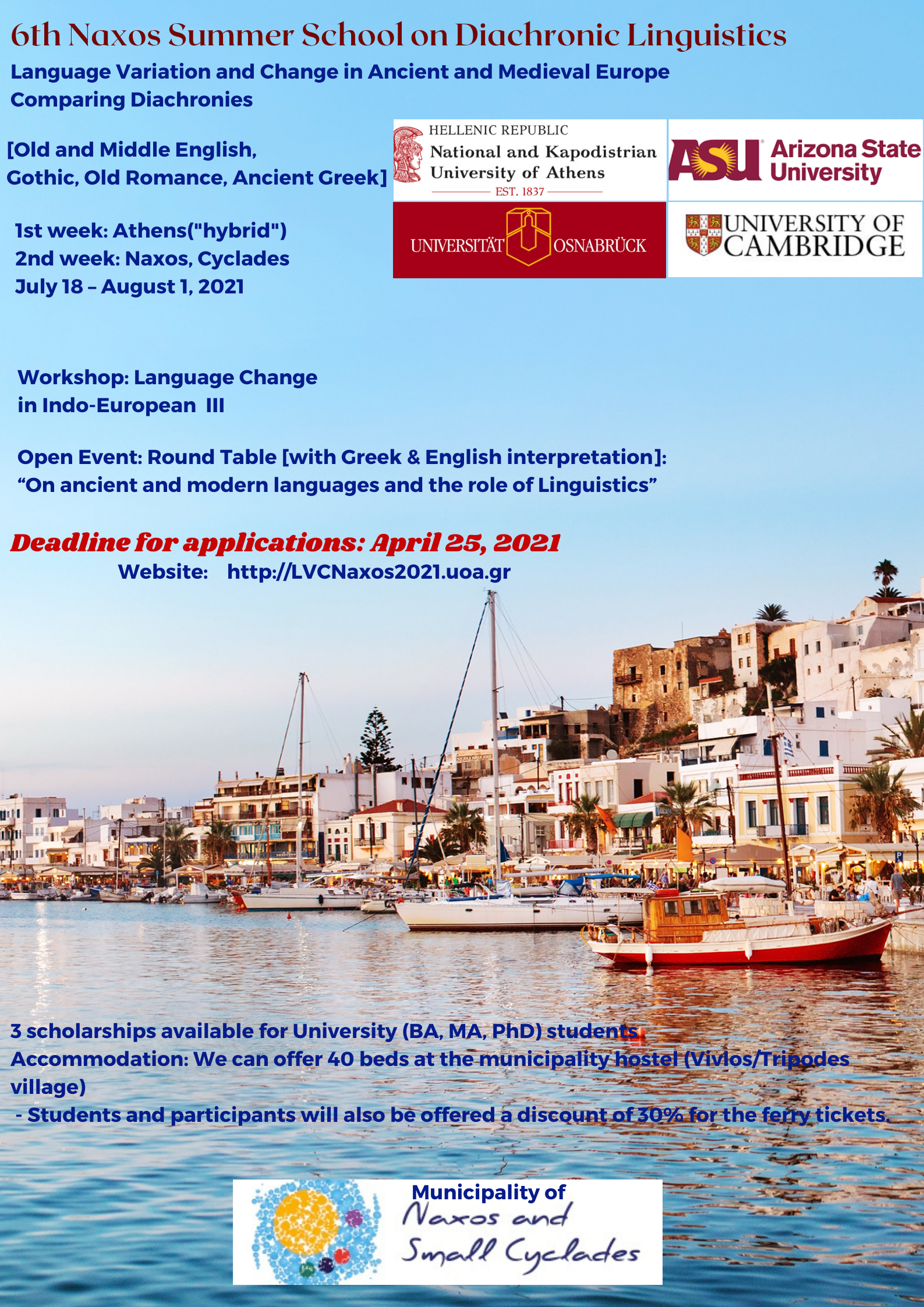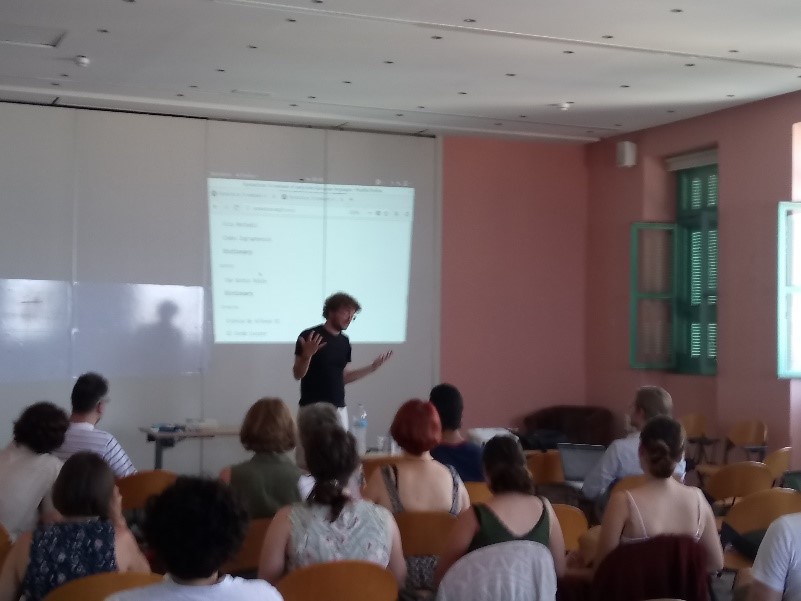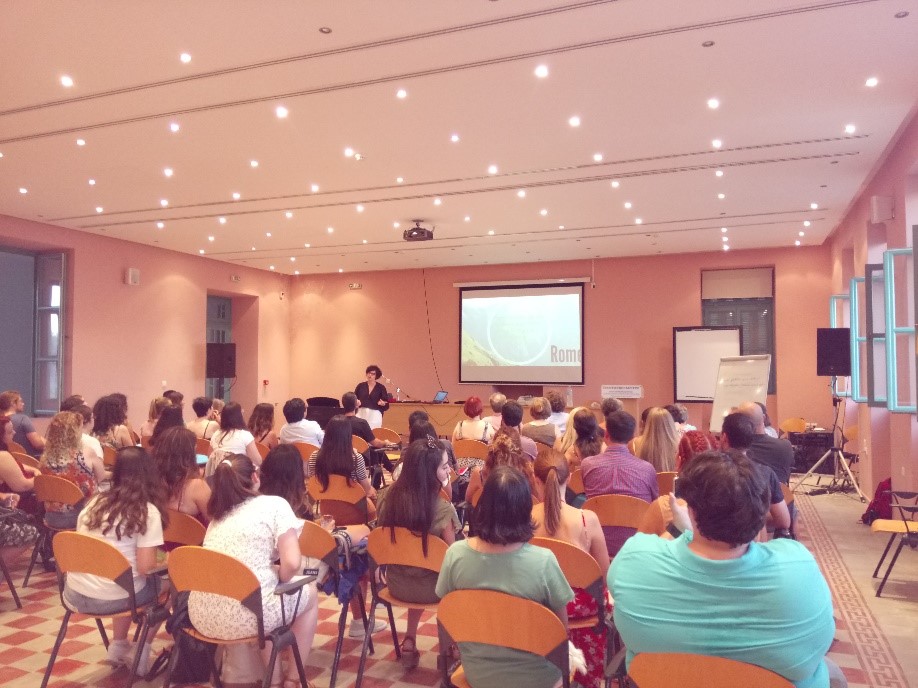Language Variation and Change in Ancient and Medieval Europe
Comparing Diachronies
♦OLD & MIDDLE ENGLISH ♦GOTHIC ♦OLD ROMANCE ♦ANCIENT GREEK
************************************************
News & Updates
April 26, 2021
The 6th Naxos summer school will have the form of a digital summer school. There is no registration fee, and participants may earn a scholarship for the next version of the summer school. Additional details and instructions will be posted on the e-class of the summer school; they will also be sent to registered participants by electronic mail.
********************************************************************
July 18 – August 1, 2021
First week: Athens, Greece ("hybrid") / or: Online
Second week: Naxos, Greece / or: Online
If the sanitary situation does not allow for physical meetings, we will offer an online alternative to the 6th Naxos Summer School on Diachronic Linguistics.
- Apply by
- April 25, 2021
- APPLY NOW
National and Kapodistrian University of Athens, Arizona State University, University of Osnabrück and University of Cambridge are coordinating a summer school program, a workshop and master classes on ancient and medieval languages and linguistics, to be held on July 18 - August 1, 2021 in Athens ("hybrid" - first week) and on the island of Naxos, Greece (second week).
The summer school will offer intensive language classes and linguistic classes on language change and variation in Ancient and Medieval Europe (with emphasis on Old and Middle English, Gothic, Old Romance and Ancient Greek) for a period of two weeks. The aim is to attract students and scholars to study ancient and medieval languages in a relaxed yet very focused and stimulating atmosphere that promotes in depth analysis and discussion.
Courses: The morphosyntax of Old and Middle English through manuscripts (Elly van Gelderen, Arizona State University); Old English and how it developed syntactically in the later Middle and Modern periods (Olga Fischer, University of Amsterdam); Old and Middle English phonology and meter (Introductory) (Donka Minkova, UCLA); Historical Sociolinguistics: Old and Middle English (Alexander Bergs, University of Osnabrück); The Goths and their cool language: From Proto-Germanic to Gothic (Thórhallur Eythórsson, University of Iceland); The syntactic evolution of the Romance languages (Ioanna Sitaridou, University of Cambridge); Introduction to Ancient Greek morphosyntax (Dag Haug, University of Oslo); Diachronic Typology: An introduction (Nikolaos Lavidas, University of Athens)
Master Classes: Nikolaos Pantelidis (University of Athens), Indo-European Phonology; Igor Yanovich (Universität Tübingen), Building language family trees with computational tools; Donka Minkova (UCLA), When do rhymes provide dependable evidence? Ioanna Sitaridou (University of Cambridge), The emergence of Asia Minor Greek; Olga Fischer (University of Amsterdam), What role do iconicity and analogy play in grammaticalization? Thórhallur Eythórsson (University of Iceland), The Preverb-Verb Construction in Indo-European: Synchronic analysis and diachronic development; Alexander Bergs (University of Osnabrück), Historical Construction Grammar; Elly van Gelderen (Arizona State University), Third factors and language change
CIVIS Master Classes: Igor Yanovich (Universität Tübingen); Vassilios Spyropoulos (University of Athens); Artemij Keidan (Sapienza University of Rome); Nikolaos Pantelidis (University of Athens); Antonio Revuelta Puigdollers (Universidad Autónoma de Madrid); Thanassis Giannaris (University of Athens); Luca Alfieri (Università degli Studi Guglielmo Marconi, Rome); Tamara Bouso (Universitat de les Illes Balears); Sirrý Sigurdardottir (Yale); Andrea Di Manno (Rome)
(In collaboration with the CIVIS Blended Learning Course / CIVIS short-mobility Course: Languages in Europe and their Diachronies: http://civis-diachronic-linguistics.uoa.gr/)
The 6th Naxos Summer School on Language Variation and Change in Ancient and Medieval Europe (July 18-August 1, 2021) will also be organizing a workshop on “Language Change in Indo-European” III, to be held on July 28, 2021.







